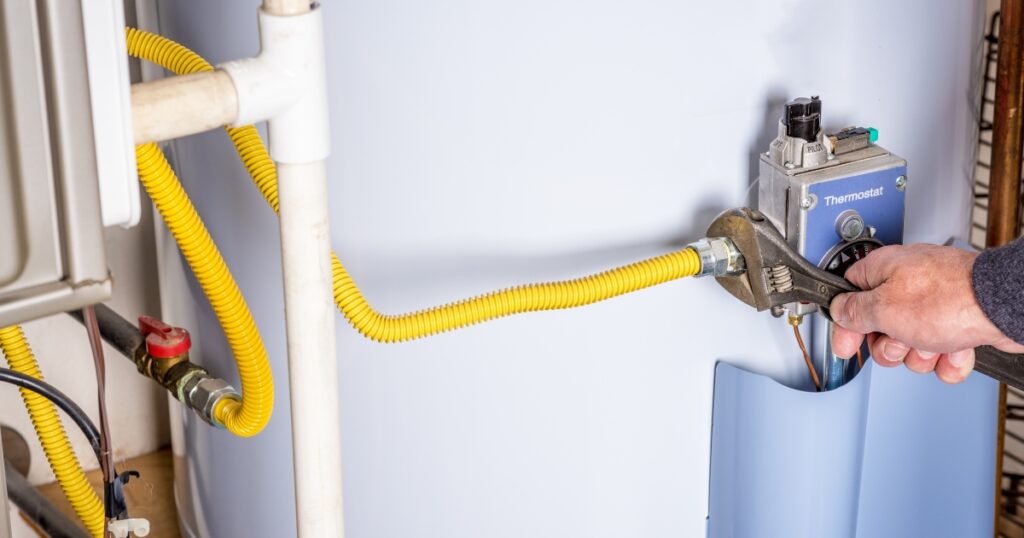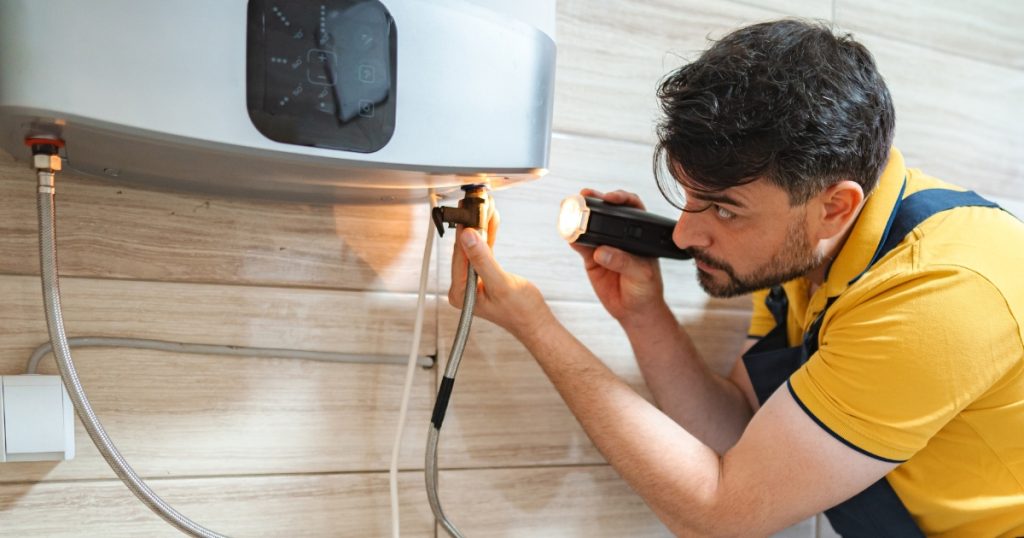Are you fed up with those infuriating, peculiar sounds that your appliances continue to make during maintenance? We completely understand mate, it’s a bit of a sticky wicket for sure.
In this article, we’re about to pull back the curtain on these puzzling noises and guide you through handling them effectively. Keen for some peace and quiet?
Key Takeaways
- Noise pollution can have adverse effects on our health and well-being, so it’s important to address unusual sounds during maintenance.
- To reduce noise exposure in the workplace, employers should implement control measures and prioritise regular equipment maintenance.
- Homeowners can minimise noise pollution by installing soundproofing materials, using quieter appliances, and addressing worn or faulty equipment promptly.
- When encountering unusual sounds during maintenance, it is crucial to listen carefully, identify the source of the noise, and take immediate action to resolve the issue.
Understanding Noise Pollution
Noise pollution is a significant problem that can have adverse effects on our health and well-being.
Definition of sound and noise
Sound is a type of energy made by vibrations. When any object vibrates, it causes movement in the air particles around it. This movement, called sound waves, keeps going until they run out of energy.

If these sound waves reach our ears, they make our eardrums vibrate too, so we can hear the sound.
On the other hand, noise refers to unwanted or disturbing sounds that may interfere with communication or cause stress. As part of this definition, what might be pleasant music to one person can be annoying noise to another! Noise is commonly described as ‘polluted’ sound and often originates from human activities like traffic or construction works.
Whether it’s a soothing melody or grating machinery at work, all sounds and noises involve some level of pressure impacting your eardrums. That impact is measured in decibels (dB).
As home owners looking after personal spaces and neighbourhood tranquillity alike is important!
Effects of constant noise pollution
Constant noise pollution can have a significant impact on our health and well-being. Excessive or prolonged exposure to high levels of noise can lead to hearing damage, tinnitus (ringing in the ears), and other health problems.
It can also cause annoyance, stress, and interference with speech communication. In the workplace, constant noise pollution can affect productivity and increase the risk of accidents due to decreased concentration and impaired communication.
It’s essential to recognise the harmful effects of constant noise pollution and take necessary steps to minimise exposure for a safer living environment.
How the ear works
Our ears are remarkable organs that allow us to hear and perceive the world around us. The ear has three main parts: the outer ear, the middle ear, and the inner ear. Sound waves enter through the outer ear and travel down the ear canal to reach the eardrum in the middle ear.
When sound waves hit the eardrum, it vibrates, sending these vibrations to tiny bones called ossicles in the middle ear. The ossicles amplify and transmit these vibrations to a fluid-filled structure in our inner ear called the cochlea.
Inside the cochlea are thousands of hair cells that convert these vibrations into electrical signals, which then travel along our auditory nerve to our brain for interpretation. It’s truly fascinating how our ears work together with our brains to allow us to experience sound in all its richness and complexity.
Dangerous decibels
Excessive noise levels can be dangerous to our health, particularly when it comes to our hearing. Noise that is too loud can cause permanent damage to our ears and lead to conditions like tinnitus, which causes ringing or buzzing in the ears.
It’s important for homeowners to be aware of dangerous decibels and take steps to protect themselves from excessive noise exposure. By understanding the risks associated with high noise levels and implementing measures such as wearing ear protection or reducing exposure when using noisy equipment, we can safeguard our hearing and prevent long-term damage.

Workplace Safety and Noise Pollution
Reducing noise in the workplace is crucial for ensuring the safety and well-being of employees. Find out more about how to minimise exposure to excessive noise and identify worn or faulty equipment that may be causing unusual sounds during maintenance.
Importance of reducing noise in the workplace
Reducing noise in the workplace is crucial for the health and well-being of employees. Excessive noise can lead to hearing damage and other health problems, affecting productivity and communication.
By minimising exposure to loud noises, employers can create a safer and more comfortable working environment. Regular maintenance of equipment is essential as worn or faulty machinery often produces more noise.
Implementing control measures such as engineering controls, administrative controls, and personal protective equipment can help manage noise levels effectively. It’s important for employers to prioritise workplace safety by addressing noise pollution and protecting their employees’ hearing.
In addition to the potential physical harm caused by excessive noise in the workplace, it also has negative effects on mental well-being. Constant exposure to high levels of noise can cause annoyance, stress, and interference with speech communication.
This can decrease job satisfaction and overall quality of life for employees. Noise control guidelines set forth by regulations provide a framework for managing unreasonable workplace noise levels.
Ways to reduce exposure to excessive noise
To minimise your exposure to excessive noise, there are several steps you can take as a homeowner. Firstly, consider installing soundproofing materials in your home, such as double-glazing windows or insulation.
This can help to block out external noises and create a quieter living environment. Secondly, be mindful of the appliances and equipment you use at home. Opt for quieter models or make sure they are well-maintained to reduce unnecessary noise.
Lastly, establish a routine maintenance schedule for your home to identify and address any potential sources of noise, such as squeaky doors or faulty plumbing. By taking these proactive measures, you can create a more peaceful living space and protect yourself from the negative effects of excessive noise pollution.
Identifying worn or faulty equipment
We need to be vigilant in identifying worn or faulty equipment during maintenance. It is crucial for homeowners to listen carefully and pay attention to any unusual sounds that may indicate a problem with their tools or machinery.
By being proactive in spotting these signs, we can prevent further damage and potential safety hazards. Regular inspections and maintenance checks are essential for keeping our equipment in good working condition.
Remember, addressing worn or faulty equipment promptly will save us time and money in the long run.
Addressing Unusual Sounds During Maintenance
When unusual sounds occur during maintenance, it is important to listen closely and take immediate steps to investigate and resolve the issue.
Importance of listening for changes in noise levels
Listening to changes in noise levels is crucial when performing maintenance tasks. It allows us to detect any unusual sounds or noises that could indicate a problem with the equipment or machinery.
By being attentive and aware of these changes, we can address issues promptly, preventing further damage and avoiding potential safety hazards. Additionally, listening for changes in noise levels helps us identify worn or faulty components that may need repair or replacement.
This proactive approach not only ensures the smooth functioning of our equipment but also contributes to a safer working environment for everyone involved. So, let’s remember to stay vigilant and listen carefully for any changes in noise levels during maintenance activities.
Steps to take when unusual sounds occur during maintenance
When you encounter unusual sounds during maintenance, it’s important to take immediate action. First, stop using the equipment or tool that is producing the sound. Next, identify the source of the noise and inspect it for any signs of damage or wear.
If you’re unsure about what could be causing the noise, consult a professional or refer to the user manual for guidance. Once you have identified the problem, assess whether it can be fixed by making adjustments or if replacement parts are necessary.
Finally, make sure to document and report any unusual sounds to your supervisor or maintenance team so that appropriate measures can be taken to address the issue. Remember, addressing unusual sounds promptly can help prevent further damage and ensure a safe working environment.
Reporting Noise Pollution
To complain about noise, you can contact your local council or authorities who handle noise complaints in Australia.
How to complain about noise
If you’re dealing with excessive noise that’s causing annoyance and stress, it’s important to know how to complain about it. Whether it’s noisy neighbours, loud vehicles, construction sites, or industrial activities, reporting the problem can help resolve the issue.

In Australia, there are regulations in place for unreasonable residential noise that can guide your complaint process. Remember to provide specific details about the noise and its impact on your daily life when making a complaint.
By taking action and reporting noise disturbances promptly, you can work towards finding a solution to minimise the nuisance and improve your living environment.
Types of noise complaints (noisy neighbours, vehicles, industry, construction)
We often encounter different types of noise complaints, ranging from noisy neighbours to loud vehicles or even excessive noise from nearby industries and construction sites. These noises can disrupt our peace and cause annoyance and stress in our daily lives.
Noisy neighbours, for example, can make it difficult for us to relax or sleep peacefully at home. Vehicles that constantly honk or have loud engines can disturb the tranquillity of our neighbourhoods.
Industrial sites and construction areas with heavy machinery can generate high levels of noise that affect our ability to concentrate or enjoy quiet moments at home. It’s important to be aware of these types of noise complaints and take appropriate measures to address them effectively.
Regulations for unreasonable residential noise
Homeowners, it’s important to be aware of the regulations surrounding unreasonable residential noise. Excessive noise can disrupt your daily life and affect your overall well-being.
In Australia, there are guidelines in place that aim to address this issue and maintain peace within residential areas. These regulations help ensure that everyone can enjoy a quiet and peaceful living environment.
By following these regulations, you can contribute to a harmonious neighbourhood and promote positive relationships with your neighbours.
Efficient Hot Water Solutions for Any Space
In conclusion, addressing noises and unusual sounds during maintenance is crucial for workplace safety. By listening for changes in noise levels and taking immediate action when unusual sounds occur, we can prevent potential hazards and equipment failures.
Reporting noise pollution and following regulations also play a vital role in maintaining a peaceful work environment. So let’s be proactive in resolving disturbances and ensuring that maintenance tasks are carried out smoothly to minimise disruptions caused by abnormal sounds and noises.
Is your hot water system making strange noises? Don’t let those sounds disrupt your peace – take action now with Hot Water Repairs Today! Contact us for expert assistance in addressing and resolving unusual noises during your maintenance routine. Trust Hot Water Repairs Today to be your go-to partner in maintaining a quiet and efficient hot water system. Don’t wait for mysterious sounds to become a constant bother – reach out now and discover the maintenance practices that keep your system operating silently. Act today for a hot water system that provides comfort without background noise. Contact us now!





